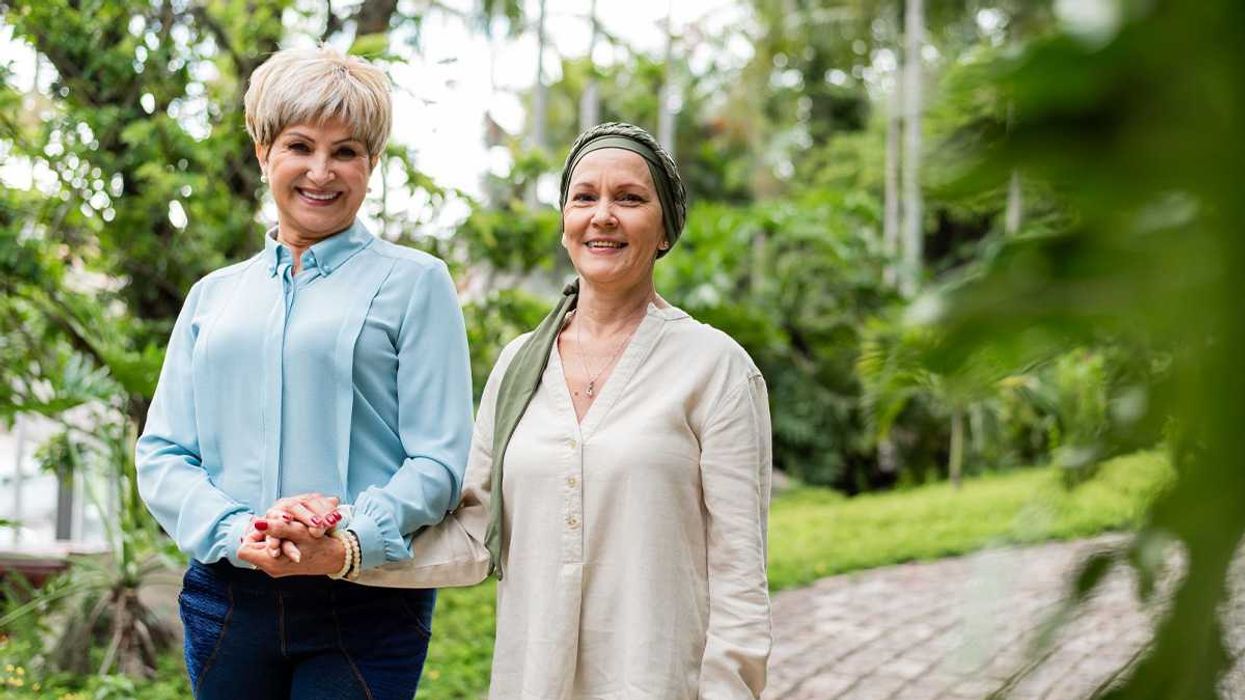In this digital age, it’s easy to feel swept up by the momentum of ever-changing technology and lose our sense of mental balance in the process. It makes sense that our hunter-gatherer brains have a hard time adjusting to this daily whirlwind of information—not to mention the hardships life tends to throw our way. While it may seem antithetical, why not use the very thing that makes us feel insane at times to get a hold on our anxiety?
Mental health apps have come a long way since the inception of laptops, smart phones, and tablets, which means you can have some of the best stress-relieving tools in the world right at your fingertips. Here are the best apps you can download and use right now to improve your mental health.
Stress and Anxiety: Headspace
It’s the meditation app to end all meditation apps. Thanks to directed meditation sessions that ease you through increasing amounts of time, it’s the perfect tool for beginners looking to learn how to meditate. Even Emma Watson has gotten in on the meditation game, calling the app “kind of genius.” While the first course is free and a great jumpstart into a solid meditation practice, you’ll have to pay a small subscriber fee if you want to unlock the rest of Headspace’s tools and courses.
Depression: Optimism
Nothing squashes depressive episodes like a hearty dose of optimism. While an app shouldn’t be anyone’s only method of treatment for serious depression, Optimism offers a starting point for those who aren’t quite sure if they’re depressed or not. With tools to help you track health and wellness strategies, triggers, and early warning signs of depression, the app can help users trying to help themselves or can be used in conjunction with standard therapy. As a bonus, it’s 100 percent free to use.
Panic Disorders: Panic Relief
Designed by Danish psychiatrist and cognitive therapy specialist Marianne B. Geoffroy, Panic Relief aims to help panic attack sufferers with visually-aided breathing exercises and calming techniques. The light version of the app is free to try, and if you find that it helps relieve anxiety, you can download the expanded version of the app.
General Stress: MoodKit
In addition to helping you track your natural mood fluctuations, this app has an array of tools to help you shift your mood into a more positive direction. With over 200 mood improvement activities, custom journal templates, and a thought checker to help you reduce negative thought patterns, MoodKit is the mental health app for the easily bored. At a price of $6.99, you’ll have numerous strategies to help improve your mood.
Post-traumatic Stress Disorder: PE Coach
Designed specifically for veterans grappling with PTSD, the PE Coach app aims to supplement traditional psychotherapy led by a Prolonged-Exposure-trained therapist. While PE Coach is not a self-help tool like many of these other mental health apps, it does provide PTSD sufferers the tools they need to accelerate their progress outside of therapy sessions. It’s free to use as well, so there’s no harm in trying it out.
Adolescent Anxiety Disorders: MindShift
It seems as if every year teenagers have more homework, more pressure to succeed, and, as a result, more to worry about. What MindShift does is help relieve those compounding worries by offering tools to combat performance anxiety, test anxiety, and perfectionism. Backed by research from BC Children’s Hospital, parents don’t have to worry about their teenage sons and daughters getting misinformation. And because it’s free, all teens can have access to MindShift’s stress-relieving benefits.
Obsessive-compulsive Disorder: Live OCD Free
As the most expensive app of the bunch at $29.99, the Live OCD Free app promises to reduce OCD symptoms by 34 percent in eight weeks using Exposure Response Prevention Therapy techniques designed by Dr. Michael Jenike, a board member of the International OCD Foundation. The app provides exercises, video tutorials, games, goals, and rewards to help decrease symptoms. There’s even a specialized version designed for children. You can check it out by heading to the app store.
















 Volunteers who drive homeless people to shelters talk with a person from Ukraine in Berlin on Jan. 7, 2026.
Volunteers who drive homeless people to shelters talk with a person from Ukraine in Berlin on Jan. 7, 2026.
 Tasks that stretch your brain just beyond its comfort zone, such as knitting and crocheting, can improve cognitive abilities over your lifespan – and doing them in a group setting brings an additional bonus for overall health.
Tasks that stretch your brain just beyond its comfort zone, such as knitting and crocheting, can improve cognitive abilities over your lifespan – and doing them in a group setting brings an additional bonus for overall health. Overdoing any task, whether it be weight training or sitting at the computer for too long, can overtax the muscles as well as the brain.
Overdoing any task, whether it be weight training or sitting at the computer for too long, can overtax the muscles as well as the brain.

 Amoxicillin is a commonly prescribed broad-spectrum antibiotic.
Amoxicillin is a commonly prescribed broad-spectrum antibiotic.  Chart: The Conversation, CC-BY-ND
Chart: The Conversation, CC-BY-ND
 Counterintuitively, social media can make you feel more bored and lonely.
Counterintuitively, social media can make you feel more bored and lonely. Talking about what you’ve read can add a social dimension to what can be a solitary activity.
Talking about what you’ve read can add a social dimension to what can be a solitary activity. 
 Women and people of color who experience cardiac arrest are less likely to receive CPR.
Women and people of color who experience cardiac arrest are less likely to receive CPR.

 Mushrooms containing psilocybin.Photo credit:
Mushrooms containing psilocybin.Photo credit:  Woman undergoing cancer treatments looks out the window.Photo credit:
Woman undergoing cancer treatments looks out the window.Photo credit:  Friend and patient on a walk.Photo credit:
Friend and patient on a walk.Photo credit: